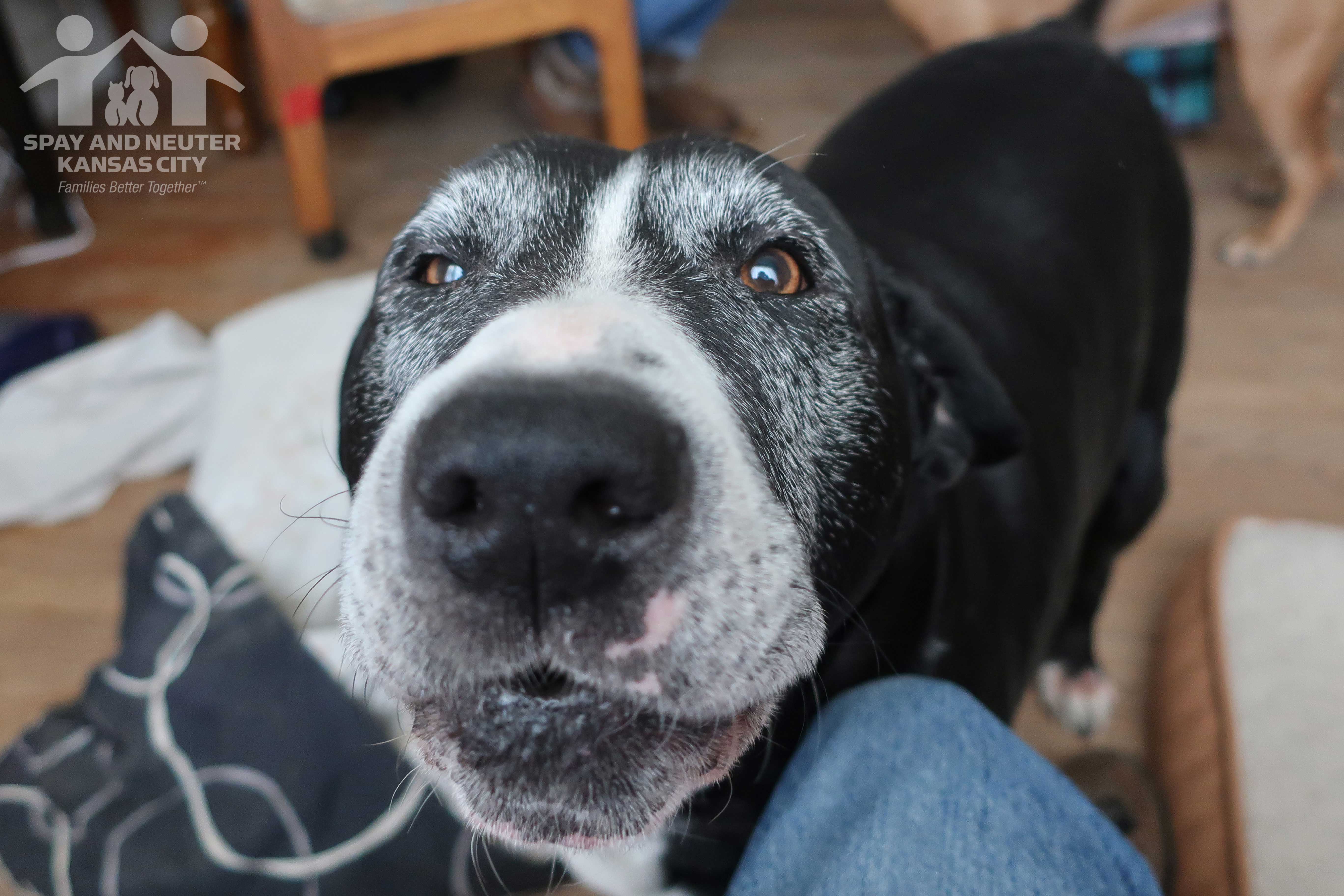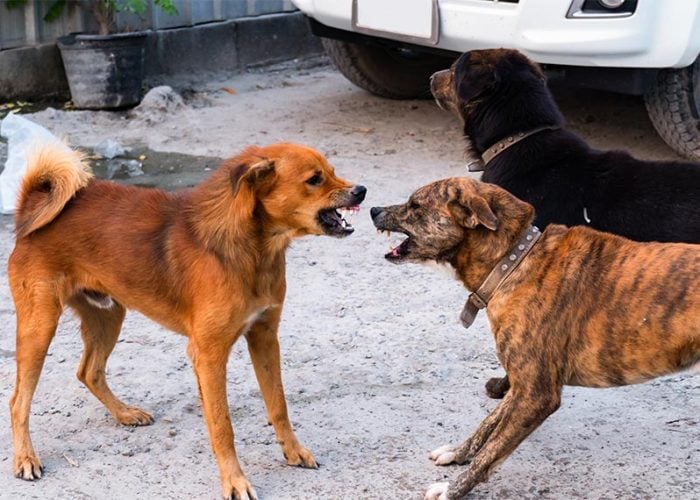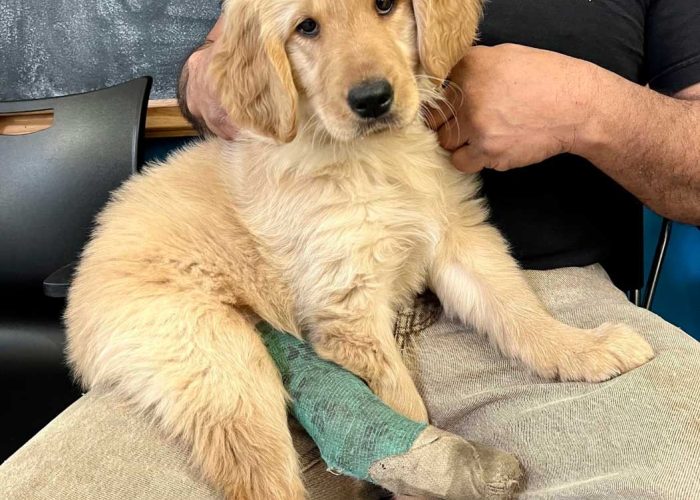Barbara lives alone now in a quiet house, except for when her son comes to stay with her occasionally. It used to be different, though. Much different.
Several years ago, her husband passed away. Five months later, her father. Five months after that, her mother. And then just two months later, one of her sisters passed.
When she recounts the timeline to me, there’s no hesitation. I’m already humbled by Barbara’s willingness to talk about the tragedy in her life.
“I shut down so bad,” she says. “I wouldn’t answer the door. I wouldn’t answer the phone.”
While she’s talking, Mimi and Booter are with her on the living room floor.
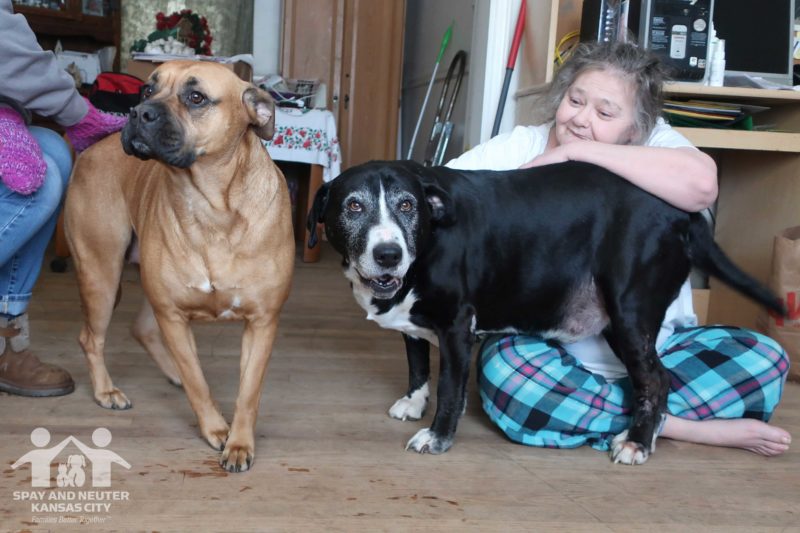
Mimi is shy at first; we were just here a week ago to pick her up to get fixed, so her caution is understandable. We’re those weird people who took her to that weird place. Her brown and black face peeks out from behind Barbara’s shoulder.
Booter’s a different matter. The old black and white chubster is standing in front of me and making short half-barks that sound like he’s trying to speak human language. He goes away from my legs toward Ramona, my coworker who’s in the other chair, then turns around and walks up to me again, still not quite speaking a language I understand. But I get it. I rub him on his head for a while, and when I stop for a few seconds, he chides me with another half-bark.
“If it weren’t for them,” Barbara says, “I don’t think I’d have made it through.”
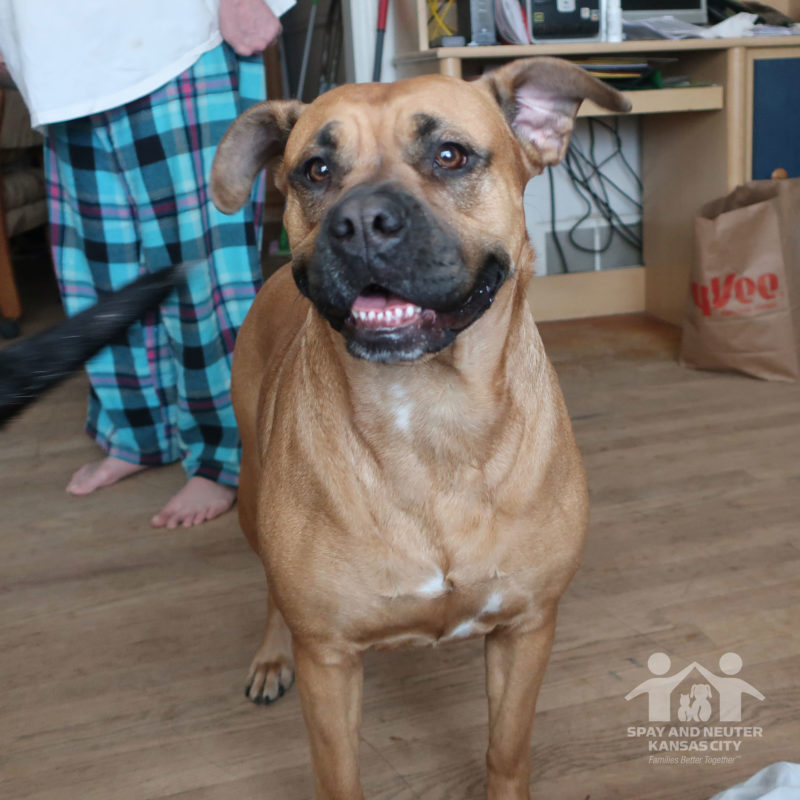
A Simple Phone Call
We first met Barbara when someone referred her to us for help with dog food. Barbara’s COPD and other health issues had taken their toll, financially, emotionally, and mentally. In addition, she’d racked up a bill at her vet because of a problem with Booter’s leg, so food was getting scarce, to the point where they were all eating the same thing.
“One time, all I had was some hamburger and some mac and cheese, and we all three ate it,” she says, Mimi nudging her way under Barbara’s arm. “It was like they understood, this is it. This is what we have.”
Beyond the food issues, she’d never had the money to get the now four-year-old Mimi fixed. And everybody was behind on vaccinations.
So she reached out to us. And we stepped in.
We got her set up on our food pantry, took care of the vaccinations, and got Mimi fixed. We helped put her in touch with Harvesters to help her with food for herself. I’ve only seen Barbara a handful of times, but she seems in much better spirits now than when we first met her, despite her health issues. Getting some relief from the pain of not being able to provide for your pets will do that to you; we see it often. Over the weeks that we’ve been working with Barbara, we’ve come to love their little family a lot. She knows that no matter what, she’s got two companions that bring meaning and happiness to her life, even on her bad days.
“When I’m sick, they’re so good to me. They know, okay, now it’s time to lay for a while.”
Not that they don’t make their opinions known.
“Some people say pets don’t talk back,” she says, laughing. “Mine do. They have no problem letting me know what they think.” Like a performer, Booter senses his cue and starts making himself heard again; Mimi looks back and forth from Barbara to Booter like she wants to bark, but isn’t sure. They’re a great little crew.
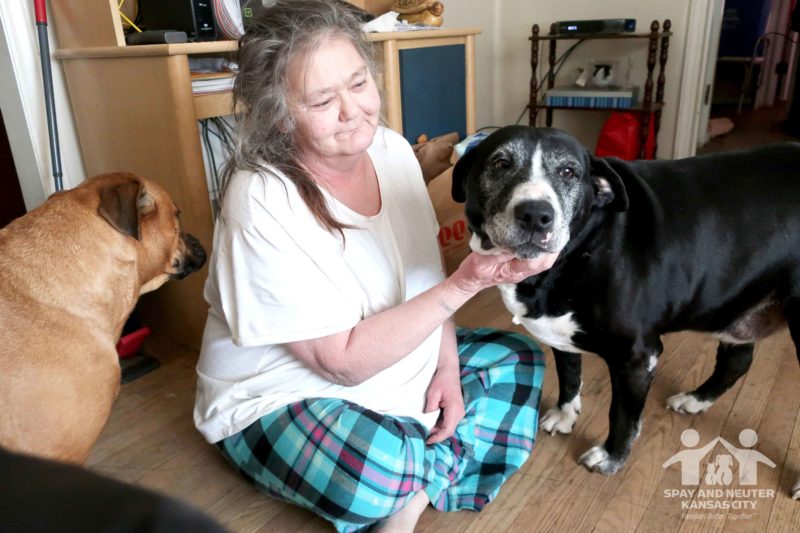
Life leaves us with empty spaces sometimes. The idea of only having memories of the past to hold onto and nothing else is a terrifying thought. That’s why people fill those empty spaces with all kinds of things: movies, TV, alcohol, drugs, food, apps.
Barbara’s been there. She knows those empty spaces; you can see it sometimes in the way she pauses before her next sentence, that glimpse of something in the eyes that goes away before you can really see the detail of it.
But she also knows how to fill those spaces up, and it’s her dogs that showed her. These are spaces designed for love, and love doesn’t go away. The absence of those we love is not the absence of love; we can redirect it, keep ourselves open, and watch those spaces fill back up again. Love isn’t finite, and there’s plenty for everybody.
